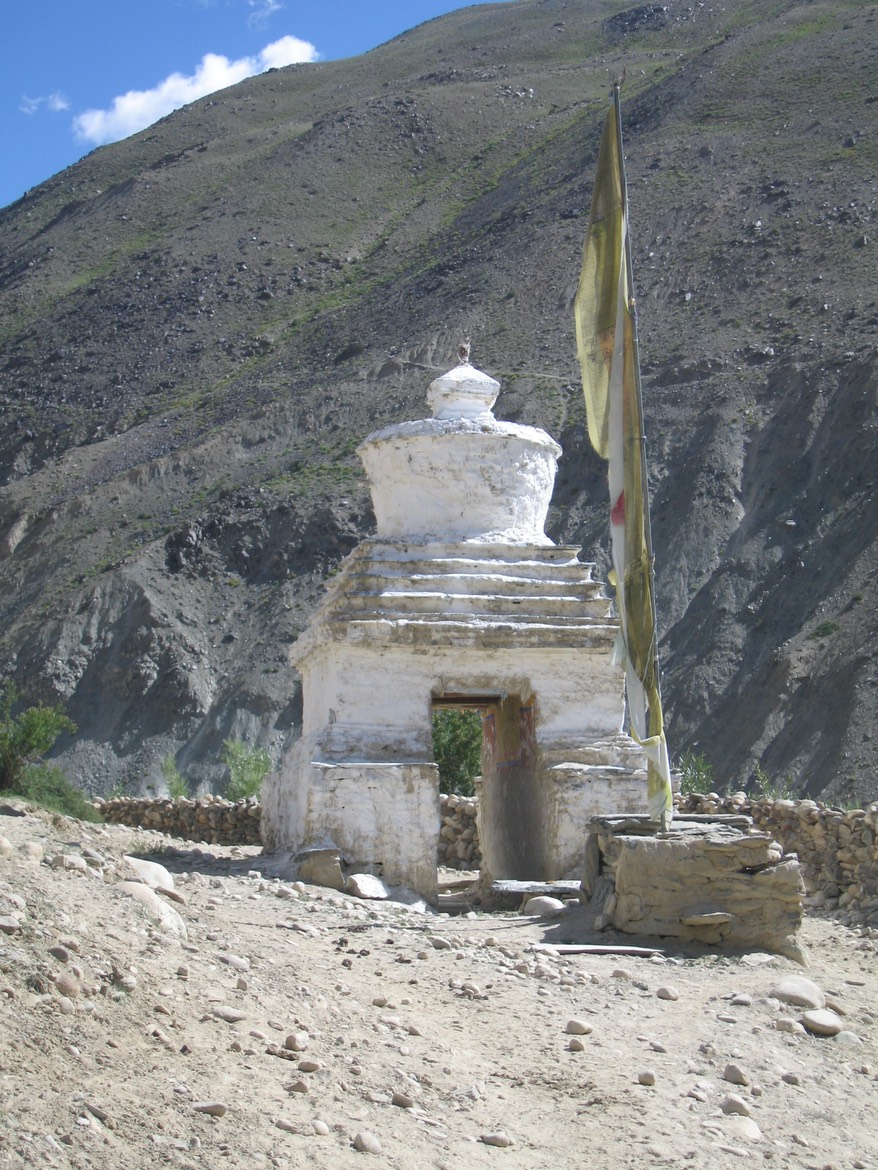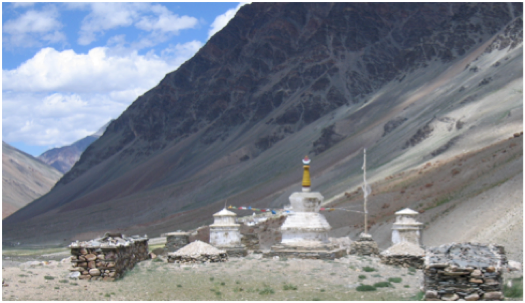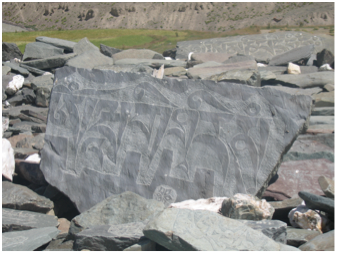
In Language 4, Looking Both Ways, I explain that the Chinese people look at history as if it is in front of them and the future is considered to be unknown and unknowable, and therefore behind them. This view of the world permeates the culture – by which I think I mean the ways of typical thought. Among the consequences is a reverence for all things old.
Well, up to a point. It doesn’t apply to buildings; if a building is not new, it is old; if it is old, then unless it belongs in a previous regime or dynasty, so no one cares to consider it as valuable. Even then what I see is an attitude that says (really) old buildings are to be kept selectively. My experiences of tourist visits are now seen with a jaundiced eye, as all ‘old’ buildings look much the same. Each one is quite spectacular but much the same as the others you might visit.
I am told that the culture embraces ancestor worship. The country recognises Tomb Sweeping Day and indeed the sweeping does occur – the grave sites or their equivalent are visited and cleaned up as necessary. Elderly people are given seats on the bus, although I have observed some sharp reminders being given to oblivious youth (imagine Mrs Pankhurst using her brolly constructively to make a point). I have been offered a seat about half of the time when none are available – and usually I feel myself to be among the healthiest folk on any public bus in this country.
There is evidence of ancestor veneration as far back as the late Neolithic (when year Eight thinks I was born):
.. the practice of living family members who try to provide a deceased family member with continuous happiness and well-being in the afterlife. It is a way of continuing to show respect towards them, and it reinforces the unity of family and lineage. Showing respect to ancestors is an ideology deeply rooted in Chinese society. It is based on the idea of filial piety (孝, xiào) put forth by Confucius. Filial piety is the concept of remaining loyal to parents as their child. It is believed that despite the death of a loved one, the original relationship remains intact, and that the deceased possess more spiritual power than they did during life. In a sense, the ancestors became thought of as deities who had the ability to interact and have an effect on the lives of those still living.

(Thompson, 1979, Chinese Religion: An Introduction).
The idea of going to talk to the ancestor, or doing that without travel to the gravesite, is common enough across the world. The problem is with the concept of remaining loyal to parents as their child. This loyalty to parents is a problem. It may be a modern problem – I certainly see it as a current one.
A typical situation is something like this: at the point when you leave university you are expected to be looking to ‘settle down’ (eider ducks do this, I think), meaning to find a life partner. The important bit is to get married. Then the new demand is for children. Sorry, a child. I express it like this because that is the way it is expressed to me by practically every twenty-something I meet – and by all of the unmarried thirty-plus people I have met. Your typical couple have the obligatory child as demanded by the parents (interesting that demand and ask are the same word) but cannot stop work because of other imperatives, including trying to make ends meet. That turns out to be okay, because the new and ever so proud grandparents’ life is now complete; they have a child to bring up. Confused? It makes some sort of sense, because the grand-parents missed (out, perhaps) bringing up their own child for the same set of reasons. So it is common to have been brought up by your grandparents. This has some curious consequences (to western eyes); it preserves aged thinking, it slows down social change, it entrenches social habits. It probably also builds in a host of unnecessary social tensions. Near the top of the values effected is a deep respect for old(er) people.

There are three components of the soul (or three souls, perhaps). One, the po, goes to the grave; the second (name not found) goes to be judged and the third, the hun, goes to the ancestral tablet. (Thanks again to Wikipedia). The po and hun are yin and yang (respectively); they are not immortal and need to be nourished to keep them going, by offerings.

Taking this seriously involves sacrifice at festivals – leaving food, incense or candles at the site. More commonly, spirit money (joss paper) is left. I see this as having close parallels with what I saw in India, where scrolls of prayers are kept for a very long time (till they pass to dust, I reckon). Pictures from me of Northern Indian village ‘gates’ with the offerings inside. Researching this I come across reference to ‘preserving the mane’, where the odd walls I met in India were mani walls, built of (or surfaced with) stones (slates) covered in prayer inscriptions. Photo of one such slate on a wall in the Hindu Kush, nearby.
There’s quite a lot of potential reading on this topic, which I will leave for you to enjoy for yourselves, at least unless and until someone writes to ask for more content.
DJS 20100515
Small edits 20100825 Tried again to eliminate the ‘missing’ attached file (that isn’t attached at all but deleted)
2017 imported the photos anew.